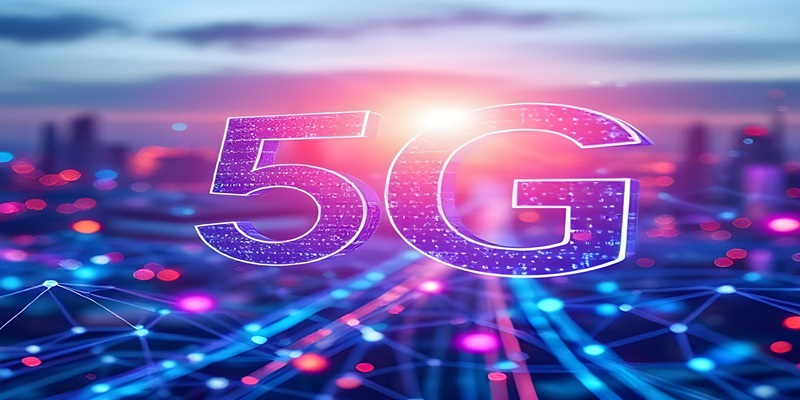The world is witnessing a technological revolution with the advent of 5G technology. As the fifth generation of wireless communication, 5G promises to transform industries, enhance connectivity, and redefine how we interact with technology. From faster internet speeds to enabling smart cities, the impact of 5G is far-reaching. However, with great power comes great responsibility, and the rollout of 5G is not without its challenges. This article explores the benefits and challenges of 5G technology, shedding light on how it is changing the world.

What is 5G Technology?
5G technology is the latest advancement in wireless communication, designed to deliver faster speeds, lower latency, and greater connectivity than its predecessors. Unlike 4G, which primarily focused on mobile devices, 5G is built to support a wide range of applications, including the Internet of Things (IoT), autonomous vehicles, and smart infrastructure. With speeds up to 100 times faster than 4G, 5G is set to revolutionize how we live, work, and play.
Benefits of 5G Technology
The introduction of 5G technology brings numerous benefits that are already transforming various sectors. Let’s delve into some of the most significant advantages.
Faster Speeds and Lower Latency
One of the most notable benefits of 5G is its incredible speed. With download speeds reaching up to 10 Gbps, users can stream high-definition videos, download large files, and enjoy seamless online gaming experiences. Additionally, 5G offers ultra-low latency, reducing the delay between sending and receiving data to as little as 1 millisecond. This is particularly crucial for applications like remote surgery, autonomous driving, and real-time gaming.
Enhanced Connectivity for IoT
The Internet of Things (IoT) is a key area where 5G technology shines. With its ability to connect millions of devices simultaneously, 5G enables smarter homes, cities, and industries. From smart thermostats and wearable devices to connected factories and agriculture, 5G ensures that all these devices communicate efficiently, paving the way for a more interconnected world.
Revolutionizing Industries
5G is set to revolutionize industries such as healthcare, manufacturing, and transportation. In healthcare, for instance, 5G enables telemedicine, remote patient monitoring, and even robotic surgeries. In manufacturing, it supports smart factories with real-time monitoring and automation. The transportation sector benefits from 5G through improved traffic management and the development of autonomous vehicles.
Enabling Smart Cities
Smart cities rely on 5G technology to optimize resources, improve public services, and enhance the quality of life for residents. With 5G, cities can implement intelligent traffic systems, energy-efficient lighting, and real-time environmental monitoring. This not only reduces costs but also contributes to sustainability efforts.
Challenges of 5G Technology
While the benefits of 5G are undeniable, the technology also faces several challenges that need to be addressed for its successful implementation.
Infrastructure Costs
Deploying 5G requires significant investment in infrastructure. The installation of new towers, small cells, and fiber-optic cables is both time-consuming and expensive. Many countries and telecom companies are grappling with the high costs associated with building a robust 5G network.
Security Concerns
As 5G connects more devices and systems, it also increases the risk of cyberattacks. The sheer volume of data transmitted over 5G networks makes them a prime target for hackers. Ensuring the security and privacy of users is a major challenge that requires advanced encryption and cybersecurity measures.
Health and Environmental Concerns
There have been debates about the potential health risks of 5G radiation, although scientific studies have not found conclusive evidence to support these claims. Additionally, the environmental impact of manufacturing and disposing of 5G equipment is a concern that needs to be addressed.
Digital Divide
While 5G promises to bring faster internet to urban areas, rural and remote regions may be left behind due to the high costs of deployment. This digital divide could exacerbate existing inequalities, making it essential for governments and organizations to ensure equitable access to 5G technology.
The Future of 5G Technology
The future of 5G technology is bright, with endless possibilities for innovation and growth. As more countries roll out 5G networks, we can expect to see advancements in areas like augmented reality (AR), virtual reality (VR), and artificial intelligence (AI). These technologies, powered by 5G, will create new opportunities for businesses and individuals alike.
Moreover, the integration of 5G with other emerging technologies will drive the Fourth Industrial Revolution, transforming industries and creating a more connected and efficient world.

Conclusion
5G technology is undoubtedly a game-changer, offering unparalleled speed, connectivity, and opportunities for innovation. From revolutionizing industries to enabling smart cities, the benefits of 5G are immense. However, challenges such as infrastructure costs, security concerns, and the digital divide must be addressed to fully realize its potential.
As we move forward, it is crucial for governments, businesses, and individuals to work together to overcome these challenges and harness the power of 5G for a better future.
FAQs
4G focuses on mobile connectivity with speeds up to 100 Mbps, while 5G offers speeds up to 10 Gbps, lower latency, and the ability to connect millions of devices simultaneously.
5G enables telemedicine, remote patient monitoring, and robotic surgeries, improving access to healthcare and enhancing patient outcomes.
Current scientific studies have not found conclusive evidence that 5G radiation poses significant health risks. However, ongoing research is essential to ensure safety.
While 5G offers faster speeds and greater connectivity, it is unlikely to replace Wi-Fi entirely. Both technologies will coexist, serving different needs and applications.
5G supports smart cities by enabling intelligent traffic systems, energy-efficient lighting, and real-time environmental monitoring, leading to improved resource management and sustainability.
By understanding the benefits and challenges of 5G technology, we can better prepare for the transformative changes it brings to our world.

